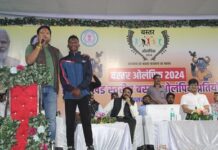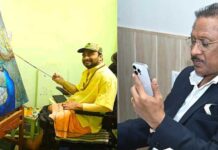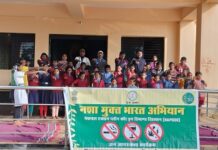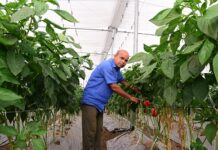Iraq’s Kurds defied widespread opposition to vote Monday in a historic independence referendum, sparking fresh tensions with Baghdad and threats from Turkey while Washington warned it would “increase instability”.
The vote in the autonomous Kurdish region of northern Iraq and some disputed areas is non-binding and will not lead automatically to independence, but is seen by the Kurds as a major step towards a long-cherished dream of statehood.
Voters flocked to the polls, eager to show off their ink-stained fingers after casting their ballots.
Turnout was 72 percent, with 3.3 million of the 4.58 million registered voters taking part, election commission spokesman Shirwan Zirar said late Monday. Prior to the vote, the commission had put the electorate at 5.3 million.
Results were expected within 24 hours, with an overwhelming “yes” vote not in doubt.
The vote took place peacefully and in a festive atmosphere, but signs of potential trouble mounted as the day progressed, with Washington saying it was “deeply disappointed” that the ballot went ahead.
“The United States’ historic relationship with the people of the Iraqi Kurdistan Region will not change in light of today’s non-binding referendum, but we believe this step will increase instability and hardships for the Kurdistan region and its people,” State Department spokeswoman Heather Nauert said in a statement.
In New York, UN chief Antonio Guterres also expressed concern about the “potentially destabilising effects” of the referendum.
Expressing respect for “the sovereignty, territorial integrity and unity of Iraq”, he called for differences to be resolved through “structured dialogue and constructive compromise”.
Lawmakers in Baghdad, which has declared the vote unconstitutional, demanded the government send troops to disputed areas where the referendum was taking place.
In Istanbul, President Recep Tayyip Erdogan warned that Turkey — which fears the effects of the vote on its own sizeable Kurdish population — would shut its border with Iraqi Kurdistan and threatened to block key exports.
And in Kirkuk, a disputed city where the vote controversially went ahead, security forces deployed on the streets after a curfew was imposed in parts of the city.
– ‘Day of celebration’ –
Soon after voting began in the Iraqi Kurdish capital Arbil, many men headed to polling stations dressed in traditional Kurdish dress of brown shirt and billowing trousers.
“I came very early to be the first to vote for a Kurdish state,” said Diyar Abubakr, 33.
“It’s a day of celebration today. That’s why I’ve put on our traditional outfit, which I bought for the occasion.”
Veteran Iraqi Kurd leader Massud Barzani, who initiated the vote, smiled as he cast his ballot early in the morning, wearing a traditional headscarf.
He pushed ahead with the referendum despite the opposition from Baghdad and Ankara, but also from Iran which has its own large Kurdish minority, and Western countries who fear the vote could hamper the fight against the Islamic State (IS) jihadist group in which cooperation between Baghdad and the Kurds has been key.
Polling stations were scattered across the three northern provinces of autonomous Iraqi Kurdistan — Arbil, Sulaimaniyah and Dohuk — as well as in disputed border zones such as the oil-rich province of Kirkuk.















